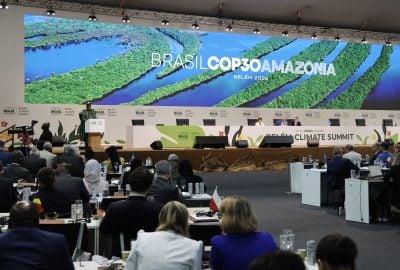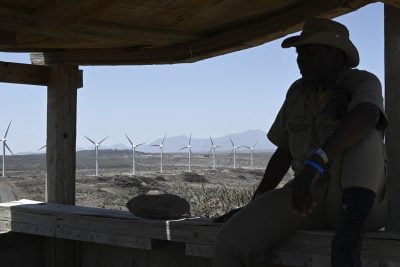Chinese President Xi Jinping’s announcement at the United Nations General Assembly in September that his country would no longer build new coal-fired power stations overseas has been celebrated by African environmentalists even as policymakers fret about the economic costs.
Immediately after Xi’s pledge, the Bank of China, the world’s foremost financier of coal-fired power in recent years, said that it would no longer provide financing for new coal plants and coal mining projects outside China from 1 October 2021.
The state lender explained that it would continue to support projects whose contracts it has already signed, meaning that coal projects in the pipeline could still get across the line. The shift in policy has been celebrated by many green energy lobbyists across Africa as a positive development that will stimulate the inescapable transition from coal to cleaner forms of energy.
The writing has been on the wall for some time. Despite being the single biggest financier of coal-fired power plants abroad, China signalled its retreat from new coal power projects in Africa in 2020. In November 2020, the Industrial and Commercial Bank of China (ICBC) abandoned plans to invest in the Lamu coal project in Kenya. This June, it ditched the $3bn Sengwa coal project in Zimbabwe.
According to a September report by the Global Energy Monitor based on its Global Coal Public Finance Tracker, China’s announcement will affect 44 coal plants under consideration for public financing from state-owned Chinese institutions in 20 countries, eight of which are in sub-Saharan Africa.
The cancellation of coal plants in Africa would cut the amount of proposed coal power by half, as China has been a major financial supporter of new coal plants on the continent. The cancellation of the projects would also completely eliminate the pipeline for new coal plants in Kenya, Madagascar, and Côte d’Ivoire, says GEM.
In its September report, No New Coal by 2021: The Collapse of the Global Coal Pipeline, E3G, a European independent climate change think-tank, says Chinese financial institutions are involved in 13 projects in the eight countries, totalling 11.4 GW of planned capacity (76% of the total pipeline in the region).
The report notes that since 2015, seven countries have fully scrapped their pipeline, leaving 13 countries still considering coal, with only South Africa and Zimbabwe currently constructing new plants.
E3G says cancelling such projects would help countries avoid locking themselves into an expensive and polluting energy source, and the risk of the costly stranding of assets. Some countries may already be left with expensive and useless coal power infrastructure.
President Xi’s pledge could hit production in South Africa, with questions over the future of a Chinese-funded coal-fired power station in Limpopo province.
Boosting the shift to renewables
Lorraine Chiponda, Africa coal coordinator for the International Coal Network, believes that African countries that have refused to heed the call by civil society groups to transition to renewable energy and still pursued coal projects will bear the greatest costs. They include Djibouti, Tanzania, Zimbabwe, South Africa, Malawi, Botswana, Mozambique, Madagascar and Kenya.
But while the change could leave coal-dependent nations in the lurch, it could boost the shift to renewable generation. Chiponda says while China’s coal pledge will disrupt the energy finance chain temporarily, it is a victory for African communities who have suffered from the environmental impacts of fossil fuel projects.
“The decision will have positive long-term effects as it will put Africa and the globe on the path to clean energy and in the short term it has positive results as communities earmarked to host dirty energy projects will not suffer from air pollution and displacement from their lands by the mega and dirty coal projects that were being proposed,” she tells African Business.
Having stopped the funding of coal projects overseas, China may now redirect financial support to green and low-carbon energy projects in developing countries. The country’s investments into renewable energy have recently constituted the bulk of its overseas energy investments and rose to 57% in 2020 from 38% in 2019.
Wu Peng, the director general of China’s Department of African Affairs in the Ministry of Foreign Affairs, said earlier this year that China has helped to build more than 80 large power facilities for Africa, most of which are hydro, wind or solar. These include the Noor Ouarzazate Solar Complex, the world’s biggest solar power station, and the Garissa solar power plant of Kenya, the largest PV power station in East Africa.
He added that 39 green projects are in the process of construction or implementation in Africa. Africa could also unlock international global finance from other countries like the US that have pledged to increase international climate finance.
Developed countries must support transition
E3G says the international community has an important role to play in ensuring that the 13 countries in Africa that still have a coal pipeline are provided with sufficient financial and technical assistance to move away from coal towards renewables.
Chiponda says developed countries who have principally caused global warming and climate change should finance Africa’s renewable energy transition in a manner that does not result in debt accumulation for African countries.
“The transition to renewable energy requires systemic, structural and policy mechanisms in place to ensure that energy is deployed to the groups that have not had access to energy and… greater accountability and good governance of energy to ensure that it serves the people,” she says.
And Africa can play an influential part in the transition to renewable energy because of its abundant possession of the minerals that are needed for renewable energy technology such as rare earth minerals.
Read more about the future of African energy in our special report.
Want to continue reading? Subscribe today.
You've read all your free articles for this month! Subscribe now to enjoy full access to our content.
Digital Monthly
£8.00 / month
Receive full unlimited access to our articles, opinions, podcasts and more.
Digital Yearly
£70.00 / year
Our best value offer - save £26 and gain access to all of our digital content for an entire year!
 Sign in with Google
Sign in with Google 



